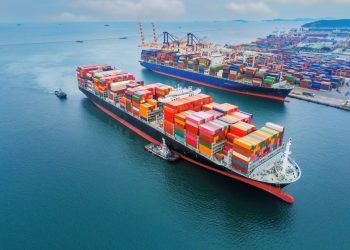Updated Marine Vessel Rules include new functional requirements and a risk-based methodology to accommodate the latest technology, writes Dan Cronin, ABS.
An increasingly complex, digitalised maritime industry is challenging designers, shipyards and vendors to deliver the kind of vessels that can safely navigate the transition to a low carbon, high efficiency operating environment. With new technologies enabling innovative approaches to design and performance across all types of vessels, the industry wants to know that class rules are keeping pace with developments.
The emergence of a goal-based approach from the International Maritime Organization (IMO) signaled a sea-change in the way regulators could develop criteria that could be applied to any technical solution, rather than the traditional prescriptive approach.
The exponential growth in technology development that we expect over the next decade and beyond has enabled designers and builders to accommodate more and more advanced technology within their concepts. Class and others have been mindful of the need for a clear pathway to understanding the risks attached to new technologies, whether for assets or the humans that work with them.
In particular, the technologies of decarbonisation that are novel and innovative, demand a fresh approach that enables shipping to achieve a safer and more sustainable energy transition.
The rate of technology development is challenging to an industry which is often incorrectly labelled as slow and resistant to change. Owners and operators are looking to move quickly to cut emissions and maintain a competitive edge.
This necessitates a requirement structure that applies a risk-based approach to class rules, which helps by quickly and efficiently identifying unintended safety consequences of employing new technology onboard their vessels, thereby allowing owners and operators to make fleet-wide decisions with speed and confidence.
In response to growing demands for a framework that can enable innovation, ABS has updated the Marine Vessel Rules and introduced new Rules for Alternative Arrangements, Novel Concepts and New Technologies to provide a process for applying functional requirements, developed in accordance with the guidance in IMO Circular 1394, and risk-based methods to designs that do not have established Rules.
This approach is aligned with the IMO process for alternative arrangements. ABS has received positive feedback from flag Administrations who also face the challenge of evaluating new ideas against regulations that were often written with a specific technical solution in mind. By following the IMO framework and leveraging predefined functional requirements, the process of obtaining both class and flag approval of alternative designs will be far more efficient.
The new Rules and approach can address any innovative idea that does not have defined requirements. Some examples may be the incorporation of new materials for a lighter vessel, equipment to handle new fuels, or a new vessel type that operates in a manner not seen before.
The updated ABS Rules enable shipowners to integrate new technology knowing that they have been through a risk-based process as part of a comprehensive ABS Class review. At the C-suite level, the enhanced rules create an environment to explore the impact of incorporating advanced digitalization capabilities and new decarbonization technology into a fleet.
For shipyards and technical personnel, the Rules provide a series of pre-defined objectives and functional criteria. ABS working with other stakeholders can determine the acceptability of the new technology and identify risks to existing systems. With approval times reduced by as much as half for the adoption of new technology, project managers can make fleet-wide decisions with speed and confidence.
ABS prescriptive Rules remain in place for conventional designs, technologies and arrangements that follow the traditional approval process. The Rule enhancements are a result of a multi-year collaboration with industry, shipyards, shipowners, equipment manufacturers, designers and regulators. Over 600 ABS clients took time to provide feedback through ABS Technical Committees, questionnaires, and other avenues. In addition to the request for a framework adaptable to new technology, two other important requests were to provide easier access and to improve the clarity of the existing Rules.
To meet those requests, ABS has also released Rule Manager 2.0, an intuitive application that allows users to quickly search and access content across the suite of ABS Rules and Guides. ABS will progressively release updated Rules for popular vessel types including offshore units, barges, high speed craft and light high speed naval craft.
The updated ABS Rules are built to adapt to a new and rapidly changing technological world, creating clarity around complex topics and simplifying access to the information the industry needs. By enhancing ABS Rules with risk-based requirements and strengthening the technical content to account for compatibility with objectives, functional requirements and prescriptive criteria, ABS has created a robust infrastructure to enable the innovation and technology to support our clients and the wider maritime industry’s evolving decarbonization and digital ambitions.
The views presented are only those of the authors and do not necessarily reflect those of SAFETY4SEA and are for information sharing and discussion purposes only.




































































